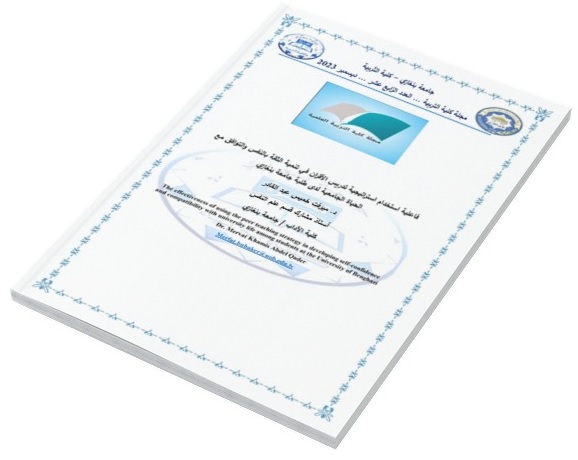The effectiveness of using the peer teaching strategy in developing self-confidence and compatibility with university life among students at the University of Benghazi
DOI:
https://doi.org/10.37376/fesj.vi14.4371Keywords:
Self-confidence, Compatibility with university life, Peer Teaching StrategyAbstract
The aim of the current research is to answer the following hypotheses:
1_ There are no statistically significant differences between the pre- and post-measurements for members of the experimental group on the self-confidence scale.
2_ There are no statistically significant differences between the pre- and post-measurements for members of the experimental group on the measure of compatibility with university life.
3_ There are no statistically significant differences between the post and follow-up measurements for members of the experimental group on the self-confidence scale.
4-There are no statistically significant differences between the post and follow-up measurements for members of the experimental group on the measure of compatibility with university life.
The quasi-experimental approach was used, and the research sample consisted of (15) female students from the University of Benghazi who were chosen in an intentional manner. The research tools were the preparation of a guide to the peer teaching strategy, the self-confidence scale prepared by Ahmed Qawasma (1996), and the compatibility with university life scale prepared by Ali Abdel Salam (2002). The research found that there were differences between the pre- and post-measurements in favor of the post-measurement on the scale of self-confidence and compatibility with university life, and that there were no statistically significant differences between the post-measurements and the follow-up measurements on the scale of self-confidence and compatibility with university life.
Downloads

Downloads
Published
How to Cite
Issue
Section
License
Copyright (c) 2023 Faculty of Education Scientific Journal

This work is licensed under a Creative Commons Attribution-NonCommercial-NoDerivatives 4.0 International License.














